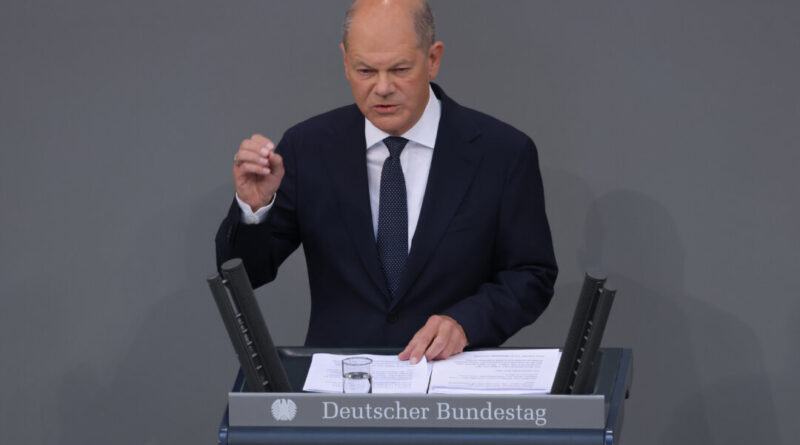Germany Denies Ukraine Request for Long-Range Precision Weapons
Long-range in military terms refers to cruise missile systems capable of striking targets at distances greater than 310 miles.
German Chancellor Olaf Scholz stated on Sept. 14 that Germany will not provide long-range precision weapons to Ukraine, regardless of NATO allies’ decisions.
“Long-range” in military terms refers to cruise missile systems capable of striking targets at distances greater than 310 miles.
Scholz mentioned at the event that providing Taurus missiles, which have a range of around 310 miles and would enable Kyiv to strike targets in Moscow, would pose a great risk of escalation.
“I said ‘no’ to that,” Scholz affirmed. “And of course, that also applies to other weapons that could reach this long distance if we had supplied them.”
Scholz emphasized that this stance will remain unchanged, even if other countries choose differently.
Kyiv’s allies have been supplying weapons with restrictions on their use inside Russia to prevent provoking retaliation that could involve NATO countries in the conflict.
Currently, the United States, Britain, and France have provided cruise missiles to Ukraine with ranges of around 190 miles, while Germany’s longest-range weapon supplied is the Mars II rocket system, reaching targets at approximately 50 miles away.
Speculation suggests that the United States may lift existing restrictions on weapons supplied to Ukraine, but for now, there are no plans to relax these restrictions.
The White House’s national security spokesman John Kirby confirmed on Sept. 13 that there is no change in policy regarding Ukraine’s use of Western-supplied long-range strike capabilities.
Recently, Russian President Vladimir Putin stated that Ukraine relies on Western support for its strikes within Russian territory, and discussions within NATO countries extend beyond Ukraine’s potential use of Western long-range weapons to direct involvement in the conflict.
Germany ranks as the second-largest contributor of military aid to Ukraine after the United States. However, Berlin plans to reduce its budget for that aid by half next year.





